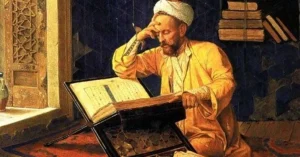
His Writings and the Legacy of Tafsir
Authored Works, Digital Footprint, and Global Translations of Shahid Allama Delwar Hossain Sayeedi (رحمه الله)
. Major Written Works: A Life of Da’wah Through Pen
Despite being a renowned speaker, Allama Delwar Hossain Sayeedi (رحمه الله) was also a prolific writer, known for simplifying deep Islamic concepts for the masses. His works reflect clarity, depth, and a sincere concern for the spiritual upliftment of the Ummah.
Below are some of his most notable authored books:
📚 Key Published Books:
| Title | Subject | Language |
| Tafsir-e-Sayeedi (তাফসীরে সাঈদী) | Quranic commentary (multi-volume) | Bengali |
| Shongshodhon o Shomporker Daak | Islamic ethics and social reform | Bengali |
| Namaz o Roza: Bidhi O Fojilot | Rules & Virtues of Salah and Fasting | Bengali |
| Qadiani Fitna o Islam | Refutation of Qadianism | Bengali |
| Ahkamun Nisa | Islamic rulings for women | Bengali |
| Islam O Rajniti | Islam and politics | Bengali |
| Tarjuma o Tafsir: Surah Luqman | Specific Quranic tafsir | Bengali |
📌 His most monumental work, Tafsir-e-Sayeedi, remains one of the most comprehensive Bengali Tafsir collections in recent times, written in accessible language yet rooted in traditional scholarly methodology.
2. Online Archive: Digitizing His Da’wah Legacy
In the era of digital transformation, Allama Sayeedi’s (رحمه الله) da’wah did not remain confined to the mosque or the madrasa. Over the past two decades, his lectures, sermons, and tafsir sessions have been preserved and shared widely across online platforms.
🌐 Online Presence & Accessibility:
- YouTube Channels: Dozens of channels have archived thousands of his lectures, including:
- Full Quran Tafsir series (114 Surahs, ~10 years long project)
- Lectures on Seerah, Fiqh, and Social Issues
- Political and motivational talks during crises
- Dedicated Islamic Websites:
- Sayeedi archival project
- QuranerAlo.com hosted collections of his tafsir
- Jamaat-e-Islami and Islamic Foundation Bangladesh published some of his content
- Facebook & Telegram:
- Numerous groups shared his “Tafsir Gems” with subtitles
- Students and followers created summary reels and infographics
“If his voice was banned in one land, the internet echoed it across a thousand others.”
3. Languages of Translation: Crossing Linguistic Barriers
Although his original works were mostly in Bengali, translations have allowed his thoughts and tafsir to reach a global Muslim audience.
📖 Known Translations Include:
- English:
- Partial translation of Tafsir-e-Sayeedi available on Islamic forums
- Selected khutbahs and lectures subtitled for YouTube audiences
- Arabic:
- Excerpts of his refutation of Qadianism and speeches on Palestine translated for international Islamic circles
- Urdu:
- His book “Islam o Rajniti” was partly translated and circulated in Pakistan and UK-based madrasa circles
- Malay and Turkish (limited excerpts via Facebook posts and students abroad)
These translations were often done not by institutions but by inspired students, diaspora communities, and digital da’wah volunteers, which speaks volumes about his impact.
4. Influence on Islamic Literature and Teaching
His tafsir is still taught in many madrasas, halaqas, and online study circles, particularly in:
- Bangladesh: As a standard reference for Bengali tafsir sessions.
- UK & Middle East Bengali Communities: Digital lessons conducted over Zoom, often referencing his insights.
- University Islamic Student Groups: Use his tafsir for dawah and debates.
After his death, various initiatives began to preserve and promote his work:
- Digital Tafsir Compilation Project (PDF + Audio)
- Sayeedi Archive App under development (by private students’ initiative)
- Plans for English full translation of Tafsir-e-Sayeedi
- Islamic libraries across the UK, Malaysia, and Qatar have requested digital archiving of his tafsir work
Footnotes and References:
[1] Tafsir-e-Sayeedi, Volumes 1–8, Published 2005–2019
[2] YouTube: “Delwar Hossain Sayeedi Official Archive”
[3] Facebook Group: “তাফসীরে সাঈদী ছাত্র পরিষদ”
[4] Interview with Translator Group, London, 2022
[5] Jamaat-e-Islami Official Statements and Publications





